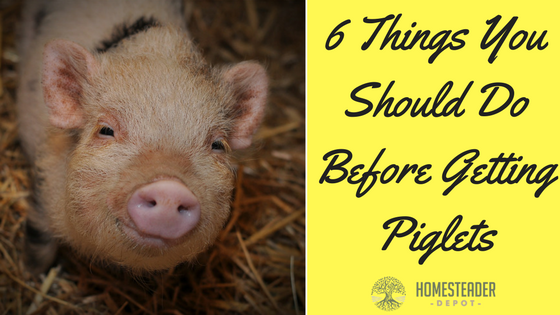I’ve raved quite a bit in the past about how great pigs are. You can buy them as piglets for a very affordable price, and within a season have a hog big enough to fill your freezer with meat. For the initial start-up cost, space they need, food they eat, and meat they yield, they’re incredibly efficient animals to raise for meat. And, as someone who hates waste, I just love how much you can feed them!
It’s also relatively easy to feed them virtually for free, which is another big plus. When you buy pork at the supermarket, you have no idea what the animals have been eating, and since pigs virtually retain everything they eat, conventionally-raised pork can be literally quite toxic. But if you raise them yourself, and can control what they consume, there’s no better source of clean, green, delicious pork!
However, you should definitely know what you’re getting into before you run out and buy a small herd of piglets.
Here are five things every aspiring pig farmer should know before bringing home piglets:
1. Find a butcher
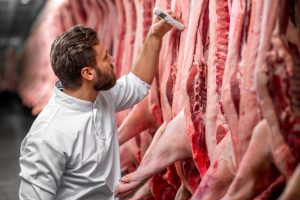
No, seriously. If you live in an area where it’s quite common for local farmers to bring their animals to a butcher after slaughtering, they can be booked up months in advance. If you don’t plan on butchering the animal yourself, which is wise for your first season of pig farming, find yourself someone to butcher it for you before you invest in pigs so you’re sure when the time comes, you’ll be able to bring it in.
2. Secure housing
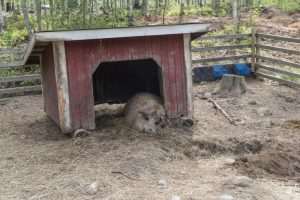 .
.
There are a couple of different options for a secure pigpen, and whatever you choose, make sure it is secure. Pigs are diggers, and many amateur pig farmers can attest to how easily they can plow through improvised fencing. An electric fence is a great option if you can afford it. Do some research into what pig farmers in your area do, as depending on the soil and the amount of rain you get, you might have to bury your fence pretty deep.
Your pigs will also need adequate shelter to live comfortably, and for both shelter and fencing, you’ll have to bear in mind how big your pigs will get. They’re quite small as piglets, so make sure to think ahead and anticipate how much room they’ll need as they grow.
The Secret to Sustainable Homestead Energy…
3. Make a meal plan
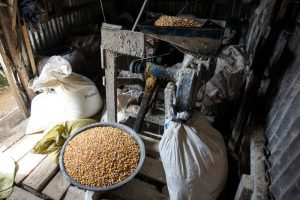
Ok, so it’s not going to be nearly as complicated as making a plan to feed your family, but before you bring piglets home, you’ll want to do some research into what you can feed them and where you’ll get it. You can feed pigs scraps from your kitchen and garden for sure, but they will most likely want more than that–a lot more. I already mentioned the many ways you can feed a pig for free, so check those suggestions out and see what you can find for free in your area before you get piglets so you’ve already got a game plan.
4. Secure their water
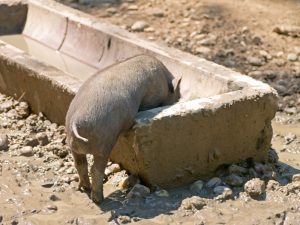
Pigs aren’t the most delicate of creatures, and especially for little ones, you’ll want to make sure you can get them regular fresh water in a container they can’t tip over…or play with. You’re probably very familiar with the cliche of pigs rolling in the mud and well, it’s true, pigs love to play in the mud, and if you don’t secure their water trough, they’ll be playing in that as well. A heavy, metal trough that can’t be tipped over or easily accessed by the pigs will be your best bet to keep them hydrated and safe.
The BEST Diet Hacks for a Primal Lifestyle…
5. Arrange transportation
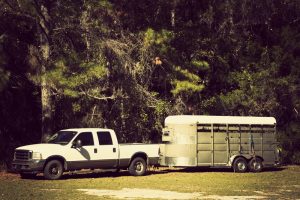
Another aspect of #1 is to make sure you can get them to the butcher when it time comes! Transporting piglets is easy, but transporting a full-sized hog is a totally different story. If you have a truck and trailer, make sure you have a means of herding the pig into the trailer. But don’t just expect them to saunter on up a ramp and into the back of a trailer, pigs won’t be naturally inclined to do that. If that’s your plan, make sure you start training them to do that right away, by doing practice runs starting at a young age. Kind of morbid to train a pig to virtually walk to his own death, I know, but just comfort yourself with the thought of all that delicious meat that will fill your freezer.
6. Know your breed
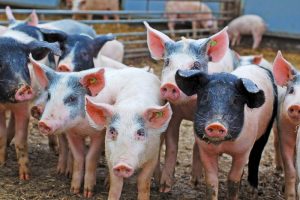
When you buy the piglets, make sure to ask the farmer who sells them to you all about the breed, and jots down their answers if necessary. You’ll want to know how big these porkers will get, what their personality is like, what cuts are the best on them, how tenacious they are at trying to escape, etc. Not all pigs are the same, and fortunately, if you buy your piglets right from the farmer, you can talk directly to the person who raised their parents so they can give you a good idea of what to expect from your own herd.
Defeat Body Pain at Any Age…

